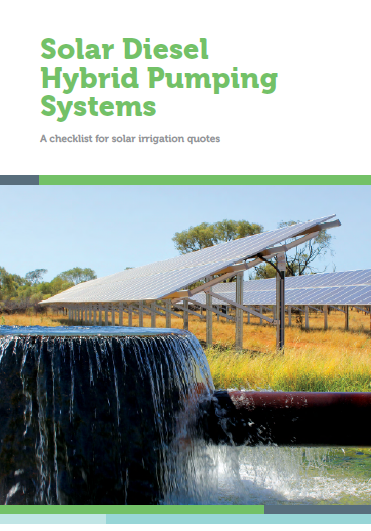Renewable energy guides for farmers

-
-
- About clean technology innovation
- CSIRO Data Clearing House
- Clean technology innovation grants
- Ecosystem grants FAQs
- Hysata’s electrolyser technology puts Australia at the forefront of the green energy revolution
- The Melt’s hardware accelerator and pilot enabler programs
- The product development lifecycle
- UoW Clean Energy Living Laboratory is set to be Australia's first mixed-use, precinct-based microgrid
- Business equipment upgrades
- Low emissions specifications
- NSW skills for net zero
- Industrial decarbonisation plans for the Hunter and Illawarra
-
- EV public charging master plan
-
- Destination charging grants FAQs
- Electric vehicle destinations charging grants: previous round information
- Eligible EV charger and software list
- Future proofing business: motel's EV success
- How hosting an EV charger can benefit your business
- How to make your town a preferred charging stop for EV drivers
- Mingara Recreation Club
- Net zero buildings
- Pumped hydro grants
-
-
-
- Find an energy course
-
- Battery storage guide
- Circular design guidelines for the built environment
- Compressed air guide
- Electricity metering and monitoring guide
- Energy efficient lighting guide
- Gas measurement and monitoring guide
- HVAC guide
- Industrial refrigeration guide
- Renewable energy guides for farmers
- Voltage optimisation guide
-
- NSW innovation that is wow
- Grant’s business got a head start with new energy efficient refrigerators
- AGL steering towards an electric future
- Advancing hydrogen storage technology
- An holistic approach to sustainability
- Collaboration is key to Port Authority’s prize-winning plan for net zero
- Driving sustainability: how STARTTS is transitioning to an EV fleet
- High impact partnership
- Second life solar
- Port of Newcastle fleet heading all electric
- Tridon Australia cutting manufacturing energy costs
The NSW Government supports farmers
The NSW Government supports farmers to use renewable energy to reduce operational costs and drought proof their farm. Additionally, farmers may need to navigate negotiations with large scale renewable energy developers who want to use their property to host a wind or solar farm. These guides provide information to help navigate these decisions.
Renewable energy can help reduce operational costs and drought-proof farms. Some farmers can host renewable energy projects and may face negotiations with large scale renewable energy developers.
These guides provide information that helps farmers navigate these opportunities.
Resources
Wind Farm Guide for Host Landholders
The NSW Government provided funding to the New South Wales Farmers' Association (NSWFA) to develop this guide for landholders who wish to host wind or solar farms on their properties. This guide has essential information that helps landholders negotiate mutually beneficial agreements with renewable energy developer. It shows how neighbours and local communities can also share in the benefits.

Hear from a wind farm host and why he chose to host a wind farm:
NSW Farmers Solar Pumping Guide
This guide to solar powered pumping of water in agriculture has been developed by NSW Farmers in collaboration with the NSW Government.
Solar power can replace a significant proportion of the mains electricity and diesel currently used in stock, domestic and irrigation water pumping. This can provide cost savings to farming operations.

Solar Diesel Hybrid Pumping Systems
This checklist was developed to help those considering solar diesel hybrid pumping such as irrigators or those wanting to go off-grid.
These systems use solar energy when the sun is shining and then switch to diesel at other times. Significant energy savings can be achieved with this solution.
